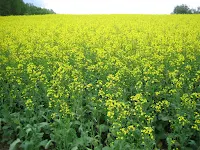While we could argue over which crisis is more grave, one important reality seems clear. As with every other contagion to have attacked human civilization in past, Covid 19, too, will pass.
Sadly, if we do not take steps which are similarly drastic to the ones now happening during the pandemic, that will not be the case with the climate crisis. This time, we must resolve to change in ways that are sustainable and ongoing.
Sadly, events unfolding before Covid clearly showed, we were simply not taking the bold and decisive steps to avoid climate disaster that we are now taking to combat the virus. Covid 19 reared its head just last year. The origins of the climate crisis emerged at least a-century-&-a-half ago at the dawn of the industrial revolution. And the signs of climate breakdown have been manifesting themselves with terrifying clarity for generations - longer, more severe and deadly storms, floods, droughts, wildfires, melting ice caps, rising sea levels and dying oceans.
Only the proud, the wilfully blind or the ignorant will not have heard the warnings of our best experts by now - if we do not take reduce or eliminating our use of fossil fuels forthwith, parts of the planet will morph into "hothouses," where even the healthiest among us, will not survive.
Covid 19 has resulted in the drastic limiting of air travel, closure of polluting industrial plants, and banning of large gatherings on a scale that is historic and unprecedented. Ironically, these are all steps, if taken years ago, that would have likely helped blunt the climate crisis, too.
Instead, we've been going ahead full-tilt with building more pipelines (including the one in BC that's trampling indigenous rights in the process), extracting more fossil fuels (including ones most damaging to the environment), and electing leaders who either deny the science, promote policies which lead to further, widespread destruction of the rain forests and oceans, or all of the above! Those efforts have surely been nothing short of misguided, vapid or wilfully harmful.
The very things climate scientists have been warning us against, are now unfolding, as I write this. Flooding has devastated Fort MacMurray, Alberta, a scant four years after wildfires raged through, destroying thousands of homes and businesses.
The tragedy of the Australian bushfires emerged in all its horror, for all to see, scant months ago.
Yet our news media remain shamefully reluctant to even ask whether any of this might be because of manmade climate change. So the residents (or their leaders) don't talk about it, either. To me, it's the elephant in the room...hard to ignore...but, they're doing it!
They simply don't (or won't), see the connection between unlimited air travel, unlimited and unfettered events like the World Cup and the Olympics, and increasing greenhouse gas concentrations that are leading us down a calamitous road.
Eerily, some of the very steps being so desperately taken to beat down the virus - closing industrial plants and limiting air travel and large crowds - are among those which will help alleviate our climate crisis, too. Sadly, those measures will need to carry on after the virus has gone, simply because the ones taken, so far, are short-term and will not be enough to bring about the kind of transformation needed.
After all, the relentless burden of greenhouse gases in the atmosphere has not "taken a pause," to wait for Covid to end.
All of the disastrous climate phenomena I've already mentioned, are continuing, unabated. (Sadly, even tho greenhouse gas levels are now dipping dramatically due to Covid-related lockdowns of industry and travel, it will not slow down the heating of the planet for some time. So, folks, our job has just begun. And we, like in the pandemic, are all in this together!
Please also read:























